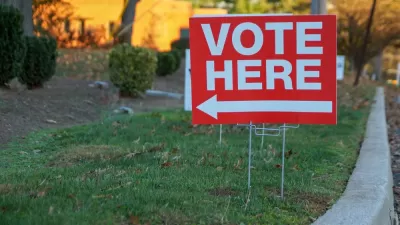Online options and oversaturation in some markets are leading to continued declines in physical storefronts around the country.

The amount of retail in some markets continues to outpace demand, leading to continued store closures around the country. Bloomberg reports that the ongoing hollowing out of the retail sector has not slowed down, leaving storefronts and malls across the country either vacant or struggling to stay afloat. This trend can be partially attributed to an oversupply of new retail space in some areas of the country that lack the population to support it.
...shuttered stores and dying malls haven't brought construction of new retail space to a halt. A collection of 55 U.S. metros will add 831 million square feet of retail space in the next five years, CoStar projects. That's about 50 percent less space than the industry added in the five years beginning in 2000, though it comes as e-commerce continues to grow.
The report notes that areas of the country that have seen population declines, including Cleveland and Chicago, are being the hardest hit by retail closures as the buying power of these areas has shrunk even as some builders keep adding new retail space.
FULL STORY: These Cities Have Too Many Stores, and They’re Still Building

Maui's Vacation Rental Debate Turns Ugly
Verbal attacks, misinformation campaigns and fistfights plague a high-stakes debate to convert thousands of vacation rentals into long-term housing.

Planetizen Federal Action Tracker
A weekly monitor of how Trump’s orders and actions are impacting planners and planning in America.

In Urban Planning, AI Prompting Could be the New Design Thinking
Creativity has long been key to great urban design. What if we see AI as our new creative partner?

King County Supportive Housing Program Offers Hope for Unhoused Residents
The county is taking a ‘Housing First’ approach that prioritizes getting people into housing, then offering wraparound supportive services.

Researchers Use AI to Get Clearer Picture of US Housing
Analysts are using artificial intelligence to supercharge their research by allowing them to comb through data faster. Though these AI tools can be error prone, they save time and housing researchers are optimistic about the future.

Making Shared Micromobility More Inclusive
Cities and shared mobility system operators can do more to include people with disabilities in planning and operations, per a new report.
Urban Design for Planners 1: Software Tools
This six-course series explores essential urban design concepts using open source software and equips planners with the tools they need to participate fully in the urban design process.
Planning for Universal Design
Learn the tools for implementing Universal Design in planning regulations.
planning NEXT
Appalachian Highlands Housing Partners
Mpact (founded as Rail~Volution)
City of Camden Redevelopment Agency
City of Astoria
City of Portland
City of Laramie





























